Questões de Língua Inglesa da Fundação Getúlio Vargas (FGV)
Lista completa de Questões de Língua Inglesa da Fundação Getúlio Vargas (FGV) para resolução totalmente grátis. Selecione os assuntos no filtro de questões e comece a resolver exercícios.
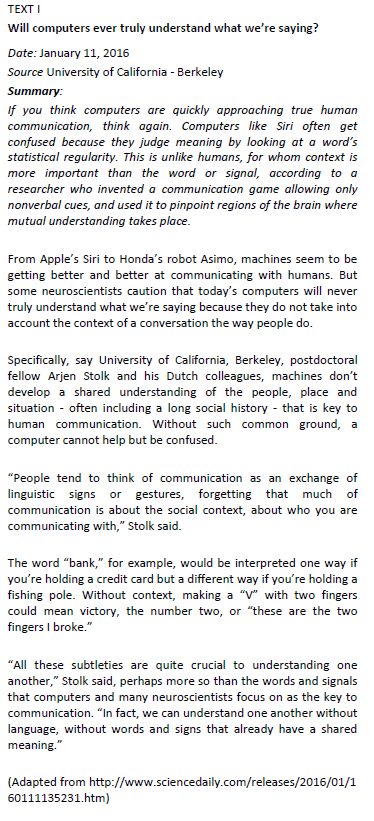 The title of Text I reveals that the author of this text is:
The title of Text I reveals that the author of this text is:
- A. unsure;
- B. trustful;
- C. careless;
- D. annoyed;
- E. confident.
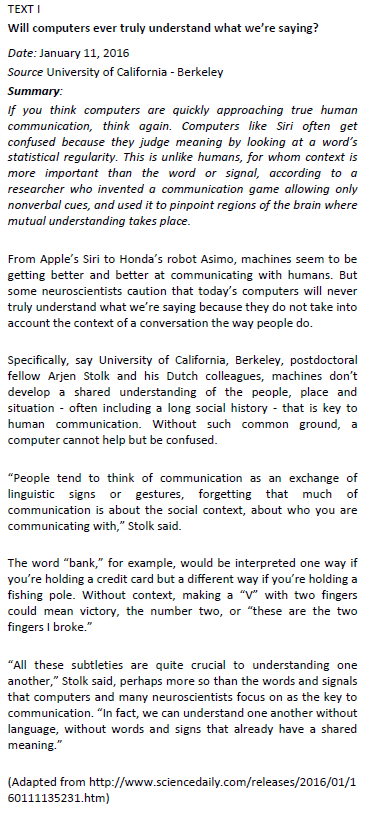
Based on the summary provided for Text I, mark the statements below as TRUE (T) or FALSE (F).
( ) Contextual clues are still not accounted for by computers.
( ) Computers are unreliable because they focus on language patterns.
( ) A game has been invented based on the words people use.
The statements are, respectively:
- A. F T T;
- B. T F T;
- C. F F T;
- D. F T F;
- E. T T F.
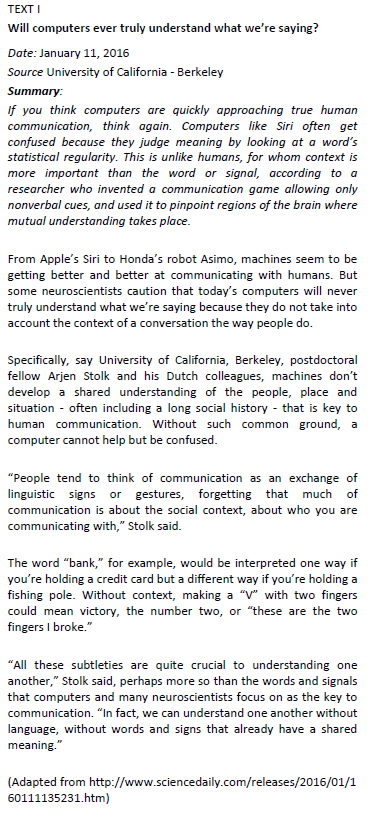 According to the researchers from the University of California, Berkeley:
According to the researchers from the University of California, Berkeley:
- A. words tend to have a single meaning;
- B. computers can understand peoples social history;
- C. it is easy to understand words even out of context;
- D. people can communicate without using actual words;
- E. social context tends to create problems in communication.
 If you are holding a fishing pole, the word bank means a:
If you are holding a fishing pole, the word bank means a:
- A. safe;
- B. seat;
- C. boat;
- D. building;
- E. coastline.
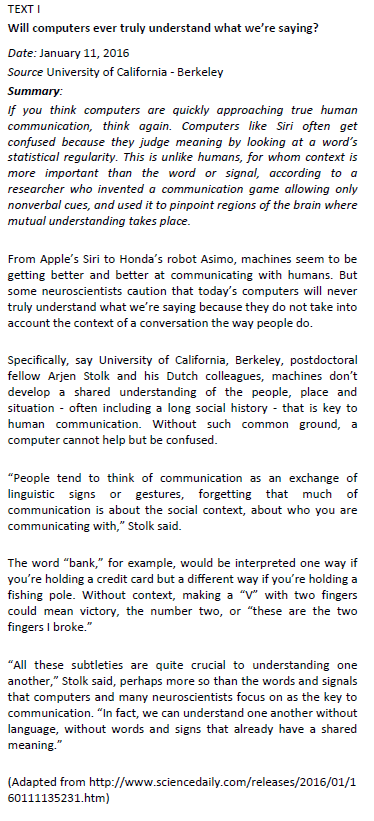 The word so in perhaps more so than the words and signals is used to refer to something already stated in Text I. In this context, it refers to:
The word so in perhaps more so than the words and signals is used to refer to something already stated in Text I. In this context, it refers to:
- A. key;
- B. crucial;
- C. subtleties;
- D. understanding;
- E. communication.
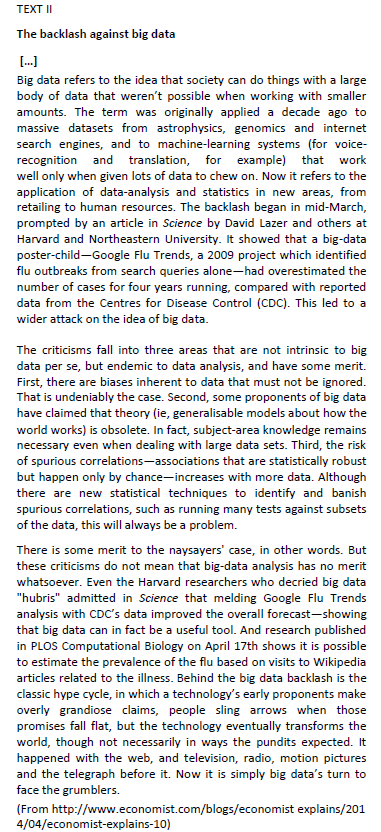 The use of the phrase the backlash in the title of Text II means the:
The use of the phrase the backlash in the title of Text II means the:
- A. backing of;
- B. support for;
- C. decision for;
- D. resistance to;
- E. overpowering of.
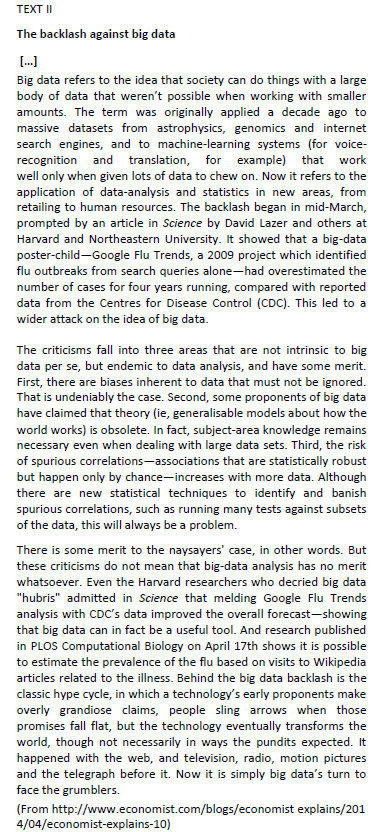 The three main arguments against big data raised by Text II in the second paragraph are:
The three main arguments against big data raised by Text II in the second paragraph are:
- A. large numbers; old theories; consistent relations;
- B. intrinsic partiality; outdated concepts; casual links;
- C. clear views; updated assumptions; weak associations;
- D. objective approaches; dated models; genuine connections;
- E. scientific impartiality; unfounded theories; strong relations.
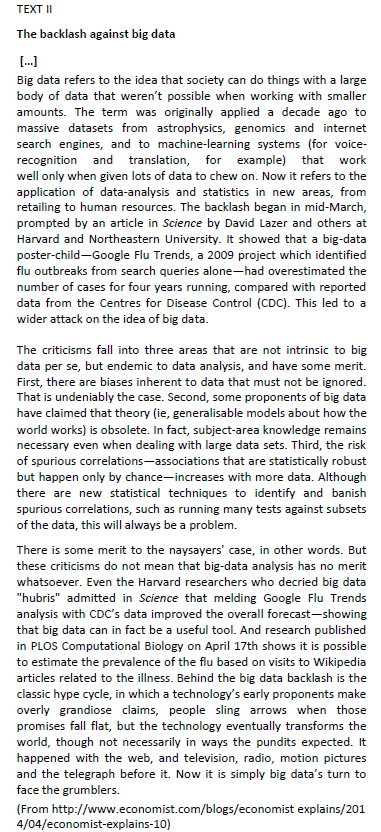 The base form, past tense and past participle of the verb fall in The criticisms fall into three areas are, respectively:
The base form, past tense and past participle of the verb fall in The criticisms fall into three areas are, respectively:
- A. fall-fell-fell;
- B. fall-fall-fallen;
- C. fall-fell-fallen;
- D. fall-falled-fell;
- E. fall-felled-falling.
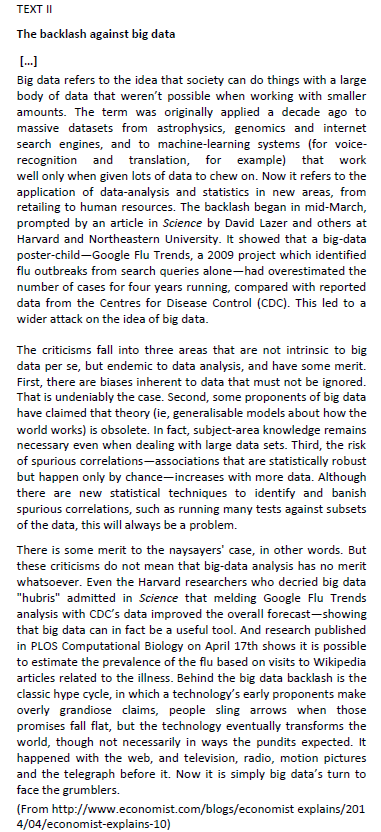 When Text II mentions grumblers in to face the grumblers, it refers to:
When Text II mentions grumblers in to face the grumblers, it refers to:
- A. scientists who use many tests;
- B. people who murmur complaints;
- C. those who support large data sets;
- D. statisticians who promise solid results;
- E. researchers who work with the internet.
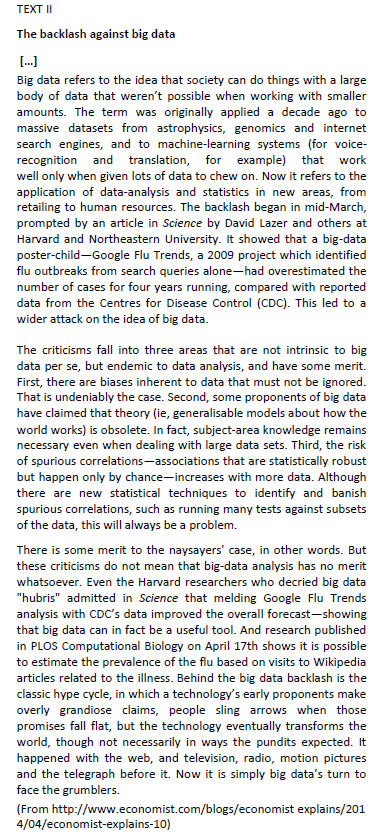 The phrase lots of data to chew on in Text II makes use of figurative language and shares some common characteristics with:
The phrase lots of data to chew on in Text II makes use of figurative language and shares some common characteristics with:
- A. eating;
- B. drawing;
- C. chatting;
- D. thinking;
- E. counting.


